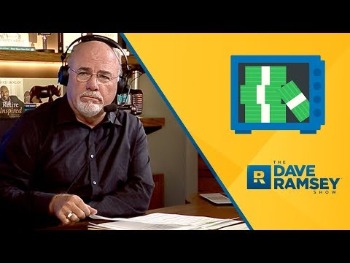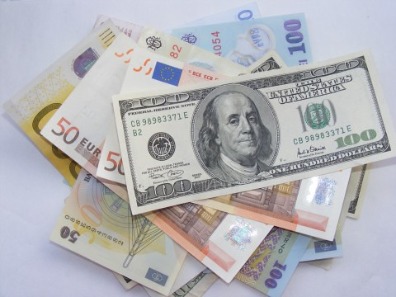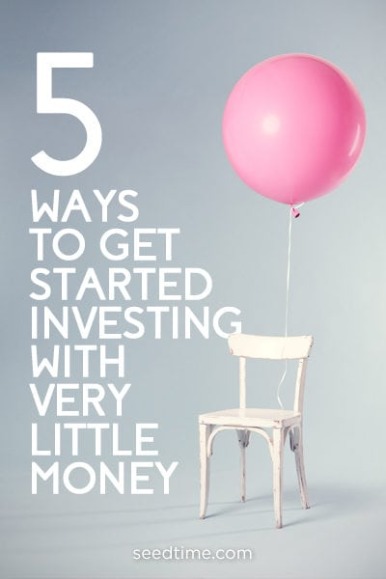Investing Money
Table of Contents Heading
- Account Types
- Figure Out How Much You Can Invest
- _gfc_invest
- What Investing Does
- Bill Gates And Warren Buffett Should Thank American Taxpayers For Their Profitable Farmland Investments
- How Much You Can Invest
- Government Bond Funds
Experts generally suggest that you can be most aggressive with goals that are well into the future , then dialing back the risk for goals in the near-term. CNBC Select spoke with a handful of certified financial planners about their advice for putting your cash in a high-yield savings account versus the stock market. Diversification does not ensure a profit or protect against a loss in a declining market. There is no guarantee that any particular asset allocation or mix of funds will meet your investment objectives or provide you with a given level of income. You can also earn money from an investment by collecting payments. Here’s a quick rundown of the most common types of investments and what they do. A value investor buys assets that they believe to be undervalued .
- Another option is to contribute to a Roth 401 or a Roth IRA, where you pay tax on contributions upfront but take withdrawals in retirement that are entirely tax-free.
- After one of the sharpest rallies in recent memory, EM equities still offer further upside.
- If the short-sell craze has you thinking of investing your cash, we recommend you understand the basics before making a move.
- If you want to invest in stocks, bonds or funds, you’ll need to have an account with a broker.
is a cheap-and-deep passive alternative holding 1,700 junk bonds and charging 0.15%. The actively managed municipal bond fund has a focus on high yield and currently yields 3.1%.
The target date fund naturally adjusts your investment allocation between stocks and bonds as you get closer to retirement so you don’t have to do much (except keep putting money in!). Amsterdam Stock Exchange is considered to be the world’s oldest stock exchange.
Energy stocks are also trading at historically depressed levels. Yet, as the pace of liquidity expansions slows, valuation will matter. Over the past decade to March 31, the U.S. market has returned almost 16 percent annually on average, a generous result for a developed-markets index. And it’s generous, indeed, given the shrinking risk, measured by near-record-low volatility. , which he expects will benefit from growth in telcos both domestic and international. It has direct exposure to three of Europe’s largest carriers, Deutsche Telekom, Telefonica, and Vodafone Group, as well as China Mobile and Japan’s NTT Docomo. The fund is market-cap weighted, with 34% international exposure and an expense ratio of 0.47%.
After cutting rates and guiding expectations lower in March and April, the PBOC has largely paused and made little change to monetary policy. While this is consistent with the continued stabilization in the economy, the overall outlook for the year has remained more ambiguous. And the Chinese government has said little about a specific growth target in 2020. The largest sectors are real estate (25%), food (14%) and electronics (14%). The country continues to deliver among the highest GDP outcomes, with our most recent growth estimates at 3% for 2020 and 7-8% for 2021.
Account Types
Funds – Funds are pooled instruments managed by investment managers that enable investors to invest in stocks, bonds, preferred shares, commodities, etc. The two most common types of funds are mutual funds and exchange-traded funds or ETFs. Mutual funds do not trade on an exchange and are valued at the end of the trading day; ETFs trade on stock exchanges and, like stocks, are valued constantly throughout the trading day. Mutual funds and ETFs can either passively track indices, such as the S&P 500 or the Dow Jones Industrial Average, or can be actively managed by fund managers. The expectation of a return in the form of income or price appreciation with statistical significance is the core premise of investing. The spectrum of assets in which one can invest and earn a return is a very wide one. Risk and return go hand-in-hand in investing; low risk generally means low expected returns, while higher returns are usually accompanied by higher risk.
In addition, Japanese equities offer accounting standards that are strict relative to the U.S., low leverage and the continuing tailwind of monetary accommodation. Finally, to the extent the global economy is likely to modestly accelerate in 2017, Japanese exporters are well positioned to benefit from improving global growth and a firmer economy. It is not clear that U.S. financials will be at the epicenter of the next crisis, as was the case in . The sector is much better capitalized and run more conservatively than it was 10 years ago. as a way to play Koesterich’s preference for preferred stock in last quarter’s writeup. goes very deep to “buy stocks everyone else hates,” as its manager puts it. A larger discount might be justified, given higher volatility and political uncertainty.
The fund holds at least 30 securities that exhibit the best relative strength from the benchmark, rebalancing quarterly. Households are further supported by manageable debt levels, record-low debt servicing costs and the highest savings rate since the early ’70s. Relief about the start of vaccination rollouts, though, was quickly met with news of a variant strain of the coronavirus that led to lockdowns in countries including the U.K., Germany and China. While negotiators struck a Brexit deal, instability ruled the day, with an insurrection in the U.S. Capitol, emerging markets groaning under debt and a still-nebulous relationship between China and the U.S. Connecting decision makers to a dynamic network of information, people and ideas, Bloomberg quickly and accurately delivers business and financial information, news and insight around the world.
The current discount compares favorably with the 10-year average discount of 15 percent. was Balchunas’s choice to play emerging-market stocks; it had a rough second quarter, falling 10 percent. Following a stellar 2017, emerging-market equities are once again on the back foot. Despite bouncing in recent weeks, so far this year the MSCI Emerging Market Index is trailing the MSCI World Index of developed countries by about 8 percentage points. The selling has left many of these markets cheap at a time when economic prospects are improving and the dollar is stabilizing.
Figure Out How Much You Can Invest
If you’re 70 and retired, the more stable income from bonds is reasonable. When it comes to options, Tom Sosnoff at Tastyworks says, “Trade small and trade often.” What type should you trade? The best way to make money by investing when it comes to options is to jump in at around 15 days before corporate earnings are released. It’s not so much about trying to catch the latest trend.
The European Central Bank has reignited its bond-buying program while the Federal Reserve is lowering rates and no longer shrinking its balance sheets. Looser monetary conditions and easier overall financial conditions create a more favorable backdrop for developing market assets. As for the companies, while not cheap at nearly 25 times trailing earnings and 22 times next year’s earnings, the sector’s valuation premium is justified. , which commands a higher fee for the liquidity it offers institutional investors. Stock markets finished the year by adding to gains they had already made during the height of the pandemic. Positive news on Covid-19 vaccine trials helped lift markets in the fourth quarter, with the MSCI World Index up 13%, the S&P 500 up 11% and the “it” stock of the year, Tesla, up 58%.
_gfc_invest
If you’re shrewd, you can turn one thousand bucks into even more money. “Stocks vs bonds over the past 100 years.” Accessed April 2, 2020. For most Americans, that means that each dollar invested costs them only $0.65 to $0.75 cents. Making it even better is the fact that the money going into your plan comes right off the top of what your employer reports to the IRS.

These companies, boasting strong balance sheets and modest levels of debt, typically have managements committed to a continuous and inexorable process of cost cutting and increased efficiency. , but it holds 80 percent of assets in U.S. companies, with just a dash of international exposure. It’s also a little expensive, with a fee of 0.75 percent, and doesn’t trade a lot, so potential buyers should use a limit order that specifies the price they want to pay.
When it comes to the most traditional way of doubling your money, that commercial is not too far from the truth. The time-tested way to double your money over a reasonable amount of time is to invest in a solid, non-speculative portfolio that’s diversified between blue chip stocks and investment-grade bonds. For example, you can purchase low-priced stocks, deposit small amounts into an interest-bearing savings account, or save until you accumulate a target amount to invest. If your employer offers a retirement plan, such as a 401, allocate small amounts from your pay until you are able to increase your investment.
Since the last half of the 20th century, the terms speculation and speculator have specifically referred to higher risk ventures. In general,stocksare the riskiest investments because their value can change daily; however, they offer the highest returns. Bonds are less risky because they offer a fixed, but lower return.
What Investing Does
Many new investors don’t understand that saving money and investing money are entirely different things. They have different purposes and play different roles in your financial strategy and your balance sheet. You can still lose everything despite having a wonderful portfolios because you don’t appreciate the role of cash in your portfolio. Businesses that pool money to invest in real estate this way are known asReal Estate Investment Trusts , and often can be acquired just like any other stock through a brokerage account. There are evenETFsand mutual funds that specialize in REITs, and you can buy them like any other equity.
While we can only hope that the second quarter is less painful than the first, investors need to continue to look for ways to insulate portfolios even as they start to venture back into stocks. Even as the pandemic subsides, both unemployment and savings are likely to remain elevated, and value investing — where you focus on beaten-down assets seen as relative bargains — is likely to struggle.
Why do savings accounts actually lose money over the long term? How much money should go into Stocks and how much into Bonds? Even if your employer doesn’t match contributions, I’m still a big fan of workplace retirement accounts. Not only do they automate investing by deducting contributions from your paycheck before you see them, but a retirement plan also cuts your taxes. And you can take all your money with you, including your vested matching funds, if you leave the company. Fortunately, the answer to wise investing hasn’t changed.
Bill Gates And Warren Buffett Should Thank American Taxpayers For Their Profitable Farmland Investments
In addition to value, there are two other reasons to consider raising the allocation to energy shares. Historically, energy stocks have been more resilient than the broader market during periods of rising interest rates and/or inflation. If part of what has dislocated the market is the challenge of navigating higher interest rates, energy companies offer a reasonable hedge. Finally, large integrated energy companies are offering dividend yields north of 4 percent. With stocks up about 16 percent year-to-date, and more than 20 percent from the December 2018 low, investors could be forgiven for believing there are no bargains left. With the S&P 500 up almost 20% year-to-date, investors can be forgiven for staying close to home. That said, the case for international diversification remains sound, in part because other markets are also producing stellar returns.

Its highest country allocations are China, South Korea, Taiwan, India and Brazil. Even if European growth is soft, European equity indices are more exposed to global, rather than local, growth. Most of the big names in the index are global champions, such as SAP in technology or Royal Dutch or BP in energy. The fortunes of these companies are more tied to global conditions. While Europe is struggling to grow, this appears well-discounted in the market. The Citi European Economic Surprise Index is close to flat.
Basically, when you invest your money, it hopefully earns returns, and then the returns you’ve earned can also earn returns of their own. This can also go the other way during down markets, but over the long term, markets have historically trended upward.
For example, instead of paying $1,000 for a $1,000 bond that pays 5% per year, an investor might buy that same $1,000 bond for $500. As it moves closer and closer to maturity, its value slowly climbs until the bondholder is eventually repaid the face amount. For the uninitiated, zero-coupon bonds may sound intimidating. Instead of purchasing a bond that rewards you with a regular interest payment, you buy a bond at a discount to its eventual value at maturity.

Sometimes there might be an account that offers a little bit of both. Ally Invest offers self-directed portfolios and might be a good option if you already have an Ally account. CNET editors independently choose every product and service we cover. Though we can’t review every available financial company or offer, we strive to make comprehensive, rigorous comparisons in order to highlight the best of them. When you apply for products or services through our links, we may earn a commission. The compensation we receive and other factors, such as your location, may impact how ads and links appear on our site. All written content on this site is for information purposes only.
Government Bond Funds
Lastly, extreme bargain hunting can turn pennies into dollars. You can roll the dice on one of the numerous former blue chip companies that have sunk to less than a dollar.

